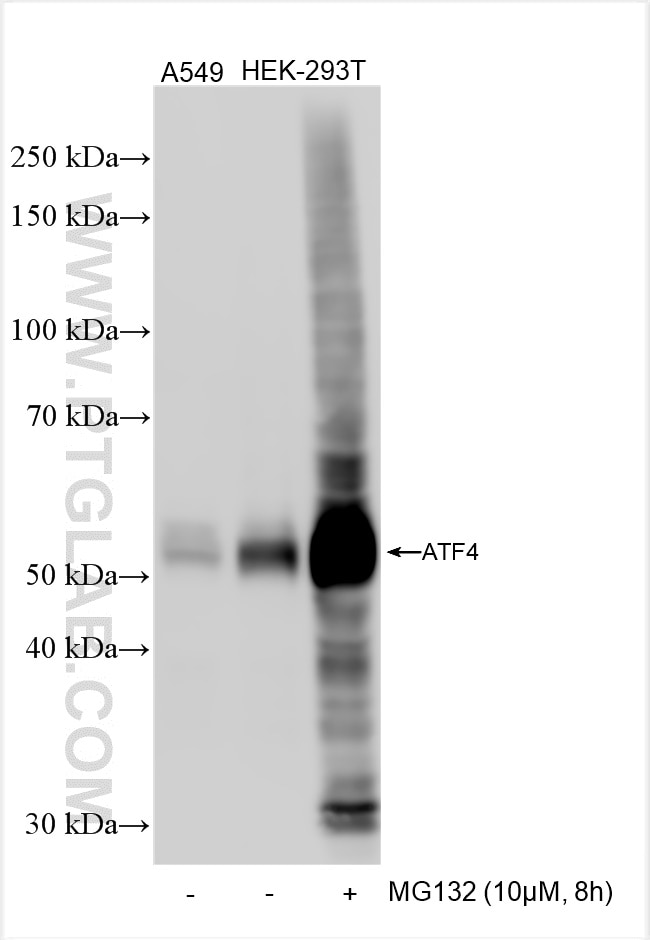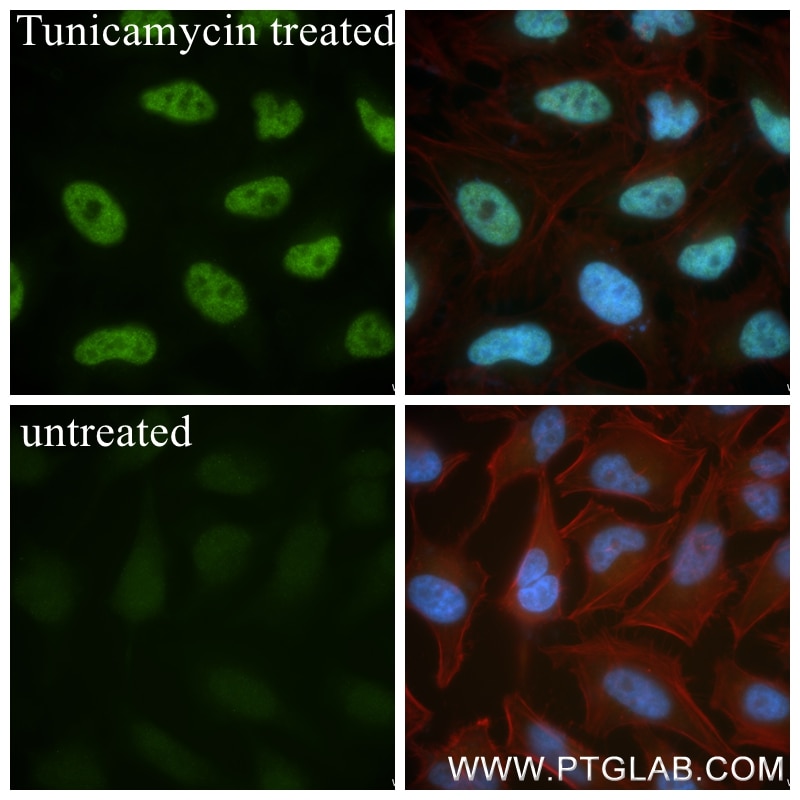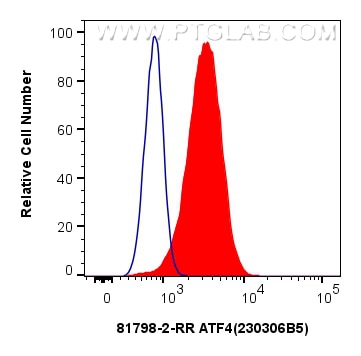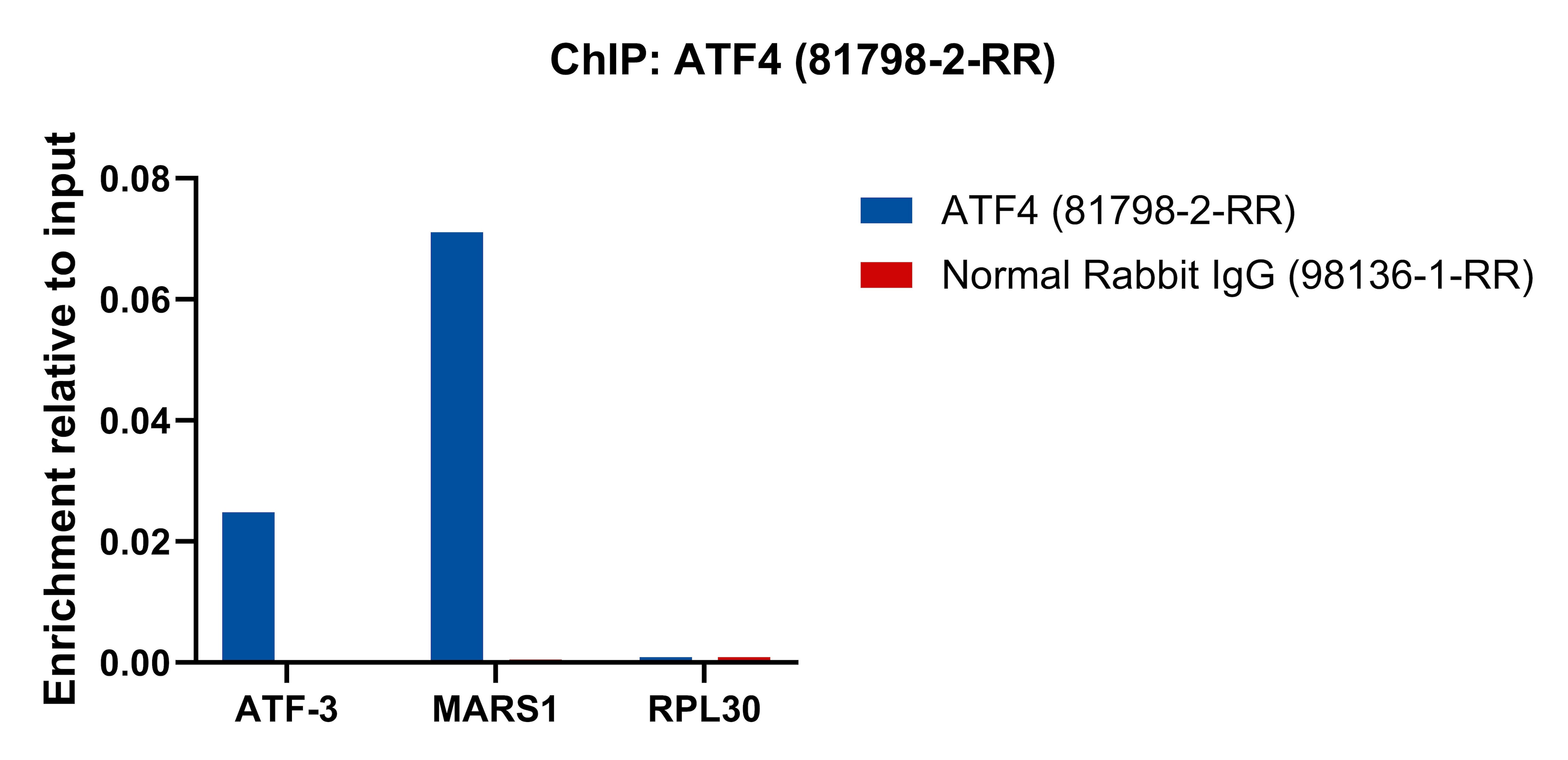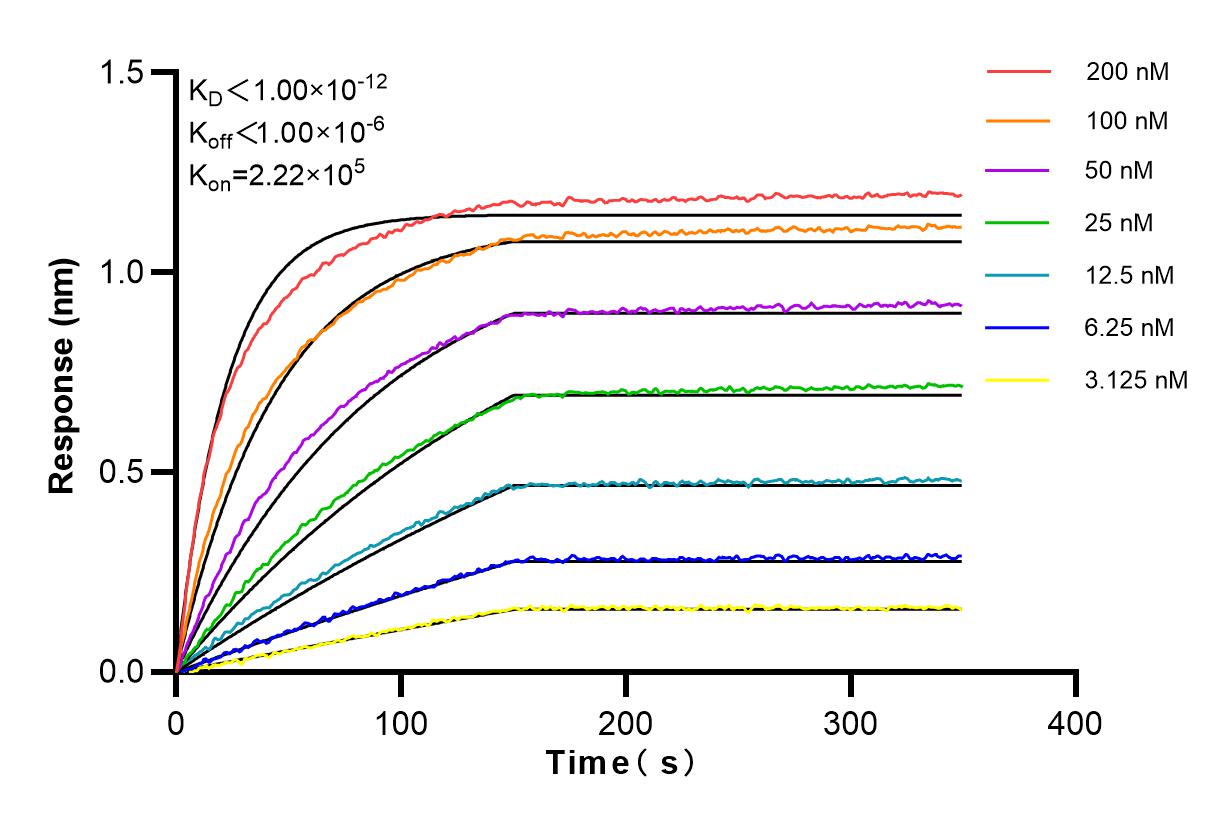ATF4 Rekombinanter Antikörper
ATF4 Rekombinant Antikörper für WB, IF/ICC, FC (Intra), ELISA, ChIP-qPCR
Wirt / Isotyp
Kaninchen / IgG
Getestete Reaktivität
human
Anwendung
WB, IF/ICC, FC (Intra), ELISA, ChIP-qPCR
Konjugation
Unkonjugiert
CloneNo.
230306B5
Kat-Nr. : 81798-2-RR
Synonyme
Geprüfte Anwendungen
| Erfolgreiche Detektion in WB | A549-Zellen, HEK-293T-Zellen |
| Erfolgreiche Detektion in IF/ICC | mit Tunicamycin behandelte HeLa-Zellen |
| Erfolgreiche Detektion in FC (Intra) | HEK-293-Zellen |
| Erfolgreiche Detektion in ChIP-qPCR | Tunicamycin-NIH/3T3 (2ug/ml, overnight) NIH/3T3 cells |
Empfohlene Verdünnung
| Anwendung | Verdünnung |
|---|---|
| Western Blot (WB) | WB : 1:1000-1:8000 |
| Immunfluoreszenz (IF)/ICC | IF/ICC : 1:200-1:800 |
| Durchflusszytometrie (FC) (INTRA) | FC (INTRA) : 0.25 ug per 10^6 cells in a 100 µl suspension |
| CHImmunpräzipitation (IP)-QPCR | CHIP-QPCR : 1:10-1:100 |
| It is recommended that this reagent should be titrated in each testing system to obtain optimal results. | |
| Sample-dependent, check data in validation data gallery | |
Produktinformation
81798-2-RR bindet in WB, IF/ICC, FC (Intra), ELISA, ChIP-qPCR ATF4 und zeigt Reaktivität mit human
| Getestete Reaktivität | human |
| Wirt / Isotyp | Kaninchen / IgG |
| Klonalität | Rekombinant |
| Typ | Antikörper |
| Immunogen | ATF4 fusion protein Ag1279 |
| Vollständiger Name | activating transcription factor 4 (tax-responsive enhancer element B67) |
| Berechnetes Molekulargewicht | 39 kDa |
| Beobachtetes Molekulargewicht | 45-50 kDa |
| GenBank-Zugangsnummer | BC022088 |
| Gene symbol | ATF4 |
| Gene ID (NCBI) | 468 |
| Konjugation | Unkonjugiert |
| Form | Liquid |
| Reinigungsmethode | Protein-A-Reinigung |
| Lagerungspuffer | PBS with 0.02% sodium azide and 50% glycerol |
| Lagerungsbedingungen | Bei -20°C lagern. Nach dem Versand ein Jahr lang stabil Aliquotieren ist bei -20oC Lagerung nicht notwendig. 20ul Größen enthalten 0,1% BSA. |
Hintergrundinformationen
ATF4 is a transcription factor, that accumulates predominantly in osteoblasts, where it regulates terminal osteoblast differentiation and bone formation. As a basic leucine-zipper (bZip) transcription factor, ATF4 can regulate amino acid metabolism, cellular redox state, and anti-stress responses. It also regulates age-related and diet-induced obesity and glucose homeostasis in mammals, and has conserved metabolic functions in flies. Due to its location at chromosome 22q13, a region linked to schizophrenia, ATF4 is considered as a positional candidate gene for schizophrenia. Otherwise, since ATF4 is induced by tumour microenvironmental factors, and regulates processes relevant to cancer progression, it might serve as a potential therapeutic target in cancer.
Protokolle
| PRODUKTSPEZIFISCHE PROTOKOLLE | |
|---|---|
| WB protocol for ATF4 antibody 81798-2-RR | Protokoll herunterladen |
| IF protocol for ATF4 antibody 81798-2-RR | Protokoll herunterladen |
| STANDARD-PROTOKOLLE | |
|---|---|
| Klicken Sie hier, um unsere Standardprotokolle anzuzeigen |
